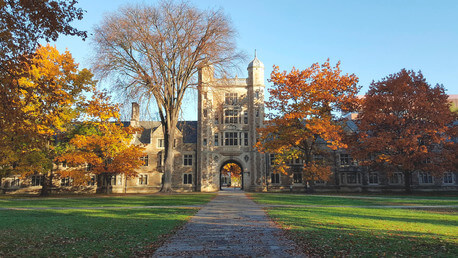Academics
Key Academic Stats
Highest Degree Offered
Doctorate
Total Number of Students
50,023
Total Number of Undergrads
39,201
Non Traditional Learning
- Online Classes
- Online Undergrad Degrees
- Summer Sessions
- Combined Institution Double Degree Programs
- Some Programs Requires Co-Op/Internship
Learning Options
- ROTC Army
- ROTC Air Force
- Study Abroad
- Honors Program
Student:Faculty Ratio
17:1
US National: 21:1Classroom Sizes
0
100
58%
Graduate in 4 Years US National: 28%
0
100
82%
Graduate in 6 Years US National: 52%
Faculty Overview
0
100
85%
Faculty With Terminal Degree US National: 36%
Gender
Ethnicity
What Students Are Saying
Academics are strongly encouraged here especially with scholarships, organizations, and to graduate. These classes are not a breeze, you have to put time and effort into them because professors want you to learn, but it is not their duty to make you. There are many libraries to assist students and way more resources to help further. We have engagement centers in most neighborhoods where you can get more help or tutoring.
Lauren from Westland, MI
join the honors college if you get the chance. incoming freshmen can join with a 30+ act score, and msu freshmen and sophomores can join with a 3.5+ college gpa. honors college members get to sign up for classes before everyone else, can take any class they want (regardless of regular restrictions or prerequisites), and get to choose their dorm freshman year. the best part of the membership is the vast array of courses available for general education requirements. non-members can choose from a selection of 7-10 classes for each general education requirement. honors college members can choose from tons of classes to satisfy the same requirement. they get more freedom in customizing their own degree programs. another perk of membership is being able to take honors sections of regular classes. these sections are usually smaller more challenging. rigor is not limited to only honors sections-a student can earn honors credit in nearly any class by arranging to do a special project with the professor.
Rachel from Ann Arbor, MI
My classes, so far, have varied in how demanding they are. My math classes have been very taxing.
Nicholas from White Pigeon, MI
You can pick the classes right and get easier professors but for the most part it is tough. I am a 3.5 student and right now I am averaging a 3.1 at MSU.
Evan from East Lansing, MI
You have to study. I've learned it's much better just to do a little everyday and stay on top of things than to try and cram for an exam a couple of days before. If you don't study your gonna be going home. Its not undo able or extremely difficult, but you just have to put in the effort and know when you should be studying instead of doing other things.
Nick from Troy, MI










